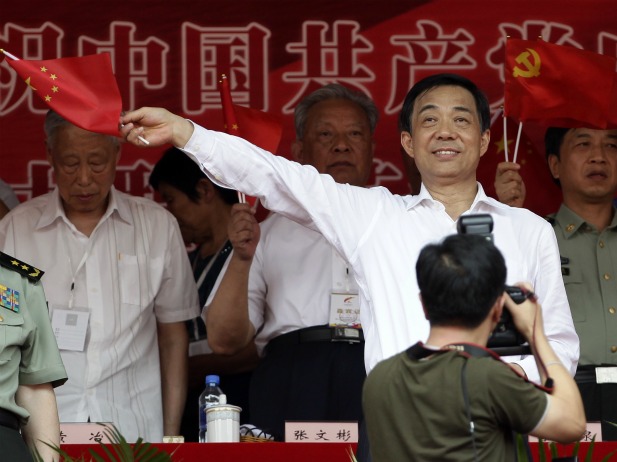Behind the Scenes at China’s Lianghui

More on:
From the outside looking in—and maybe from the inside as well—China’s legislative gatherings of the National People’s Congress and the Chinese People’s Political Consultative Conference are largely tedious affairs, dominated by long-winded prepared speeches and commentary. Yet behind the scenes there is always some high-level politicking, some real ideas floating about, and generally a few moments worth waiting for.
Politicking probably takes the top spot this year given that China is in the homestretch of its leadership transition. The hottest issue has certainly been whether Chongqing Party Secretary Bo Xilai—whose political future may have been torpedoed by the apparent attempted defection of one of his underlings Wang Lijun—would show up for the meetings. And if he did show, what would he do? Well Bo did show, and he tried to put the best face on his unhappy predicament, selling the economic success of the Chongqing model hard in a bid to keep his Politburo Standing Committee hopes alive. One thing missing this year—Bo’s relentless hyping of the Maoist revival he launched back home in Chongqing, which included singing “red” songs and pushing a number of city-wide campaigns, all of which in better times earned him national acclaim.

Journalists at this year’s congress did Bo Xilai no favors, reporting that he appeared “tired” and “languished.”
On the ideas front, Guangdong Party Secretary Wang Yang—another contender for a seat on the Standing Committee of the Politburo—has come out swinging. Fresh from his successful management of the Wukan village protests, Wang is claiming the reform mantle. In a discussion on political reform, he proposed a number of ideas sure to appeal to the vast majority of Chinese citizens including everything from “scrapping lengthy introductions and applause for officials at government meetings,” to more meaningful reforms, such as cutting back on ministries’ powers to veto projects and strengthening intellectual property rights.
Some additional substance from the meetings can be captured quickly by a look at Caixin’s daily roundup of interesting quotations from various delegates. The Global Times also is staying on top of the legislative debates with some thoughtful commentary—not necessarily the highlights report from Premier Wen Jiabao’s work report, which gets down to details such as “The government will enhance school bus safety to ensure children’s safety,” but rather a couple of editorials the paper has published over the course of the meetings. One, which is entitled “Two sessions reflect clamor for reform,” argues “China is in need of ideological liberation and needs a great number of reformers. They should dare to break with convention and to make breakthroughs that were deemed forbidden.” A second, “Path to national revival must stay on target,” published five days later cautions that China needs new bold reforms, but it also needs to firmly uphold some of the fundamentals.” One of the fundamentals, according to the article, is the political system. (It should be noted that the Global Times is often very interesting, but consistency is not always its strong point.)
And thus far the moment worth waiting for takes us back to Bo Xilai. On Thursday, March 8th, Bo reportedly missed a significant meeting and photo op with the rest of the Politburo. In China, such a picture is easily worth a thousand characters. Usually everyone focuses on who is standing where as a sign of the relative power of each person—if you’re not standing anywhere, nothing more need be said.
More on:
 Online Store
Online Store
